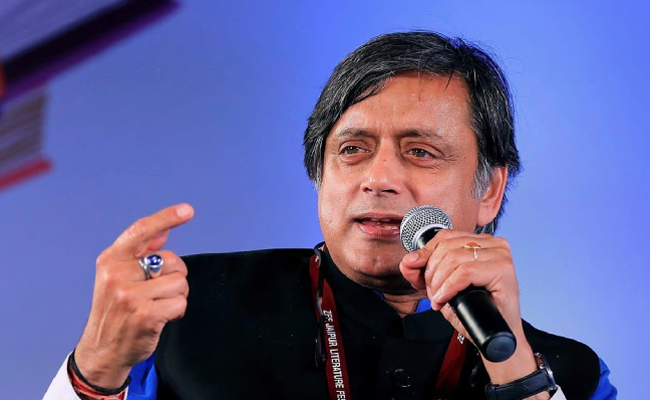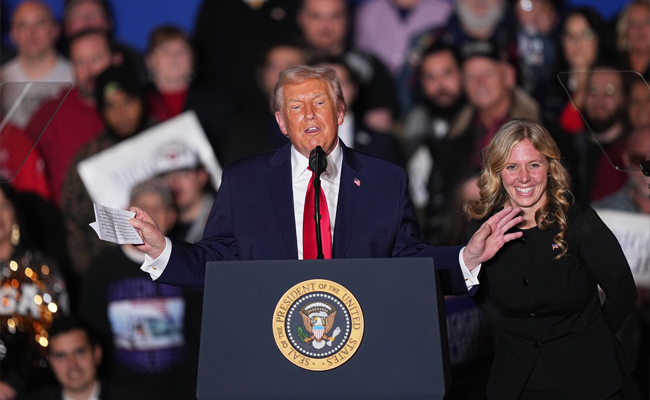Bengaluru (PTI): The BJP's promise in its manifesto that it will set up 'Atal Aahara Kendra' in each ward of every municipal corporation in Karnataka has put a question mark over the fate of the 'Indira Canteens', which the then Siddaramaiah government launched in August 2017.
The BJP national president J P Nadda released on Monday the 'Praja Pranalike' (Citizens' Manifesto) in the run-up to the May 10 Assembly elections.
"We will set up an 'Atal Aahara Kendra' in every ward of every municipal corporation in the state to provide affordable, quality and healthy food across the state with special focus for delivery boys, cab, auto drivers and unorganised workers," the party said in its manifesto.
"I don't know about the Indira Canteen 'Yojana' but I know that this (Atal Aahara Kendra) is going to take care of the common man," Nadda said in response to a question on the fate of Indira Canteens.
Senior Congress leader and former Chief Minister Siddaramaiah said, "It is ridiculous that the BJP government is promising to open 'Atal Aahara Kendra' after vindictively shutting down 600 Indira Canteens set up by the Congress across the state during its tenure."
In Bengaluru, the Indira Canteens were set up by the then Congress government in about 200 places with an investment of Rs 94 crore, according to Congress leaders.
The Congress had earlier repeatedly accused the current BJP government of shutting down Indira Canteens or changing the name and making it redundant.
"Is your tummy so full that you are ignorant about poor man's hunger? Or does your party cater to only elites' appetite? We shall never tolerate any attempt to axe down Indira Canteen," Siddaramaiah had tweeted on August 28, 2019.
ALSO READ: Congress launches 'CryPM' campaign showing PM Modi wiping tears
The Congress stalwart made his fear public a month after BJP's B S Yediyurappa became the Chief Minister for a fourth time.
Yediyurappa had then clarified that there were no plans to shut or rename the Indira Canteens.
The Congress government launched the Indira Canteen scheme in August 2017 on the lines of 'Amma Canteen' in Tamil Nadu.
"The government had earmarked Rs 94 crore for the Indira Canteen project. We spent Rs 30 lakh on constructing each canteen in each ward of the Bruhat Bengaluru Mahanagara Palike and Rs 60 lakh on each kitchen," a senior government officer, who was part of the project, told PTI.
The annual recurring cost is about Rs 100 crore, which involves Rs 27 a day on each person having meals in the Indira Canteen, he explained.
He said every day about three lakh people avail the food services at these Indira Canteens across Bengaluru.
According to him, the concept of 'Atal Aahara Kendra' is same as the Indira Canteens, where people get breakfast for Rs five and meals twice a day each costing Rs 10.
Let the Truth be known. If you read VB and like VB, please be a VB Supporter and Help us deliver the Truth to one and all.
Tezpur (PTI): A retired Indian Air Force personnel has been arrested in Assam's Sonitpur district for alleged links with Pakistani intelligence operatives, police said on Saturday.
Additional Superintendent of Police Haricharan Bhumij said preliminary investigation revealed that the accused had shared sensitive documents and information with Pakistani operatives over social media.
Police have seized his laptop and mobile phone.
The devices have been sent for forensic examination, though some data has been deleted, Bhumij said.
The accused was a junior warrant officer in the IAF and had retired in 2002 from Tezpur’s Salonibari base.
He had later joined the electronics department of Tezpur University, but quit.
Bhumij said a case has been registered under the relevant sections of the BNS and a local court has remanded the accused to five days police custody.





